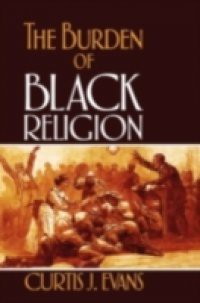Religion has always been a focal element in the long and tortured history of American ideas about race. In The Burden of Black Religion, Curtis Evans traces ideas about African American religion from the antebellum period to the middle of the twentieth century. Central to the story, he argues, was the deep-rooted notion that blacks were somehow naturally religious. At first, this assumed natural impulse toward religion served as a signal trait of black peoples humanity -- potentially their unique contribution to American culture. Abolitionists seized on this point, linking black religion to the black capacity for freedom. Soon, however, these first halting steps toward a multiracial democracy were reversed. As Americans began to value reason, rationality, and science over religious piety, the idea of an innate black religiosity was used to justify preserving the inequalities of the status quo. Later, social scientists -- both black and white -- sought to reverse the damage caused by these racist ideas and in the process proved that blacks were in fact fully capable of incorporation into white American culture. This important work reveals how interpretations of black religion played a crucial role in shaping broader views of African Americans and had real consequences in their lives. In the process, Evans offers an intellectual and cultural history of race in a crucial period of American history.

